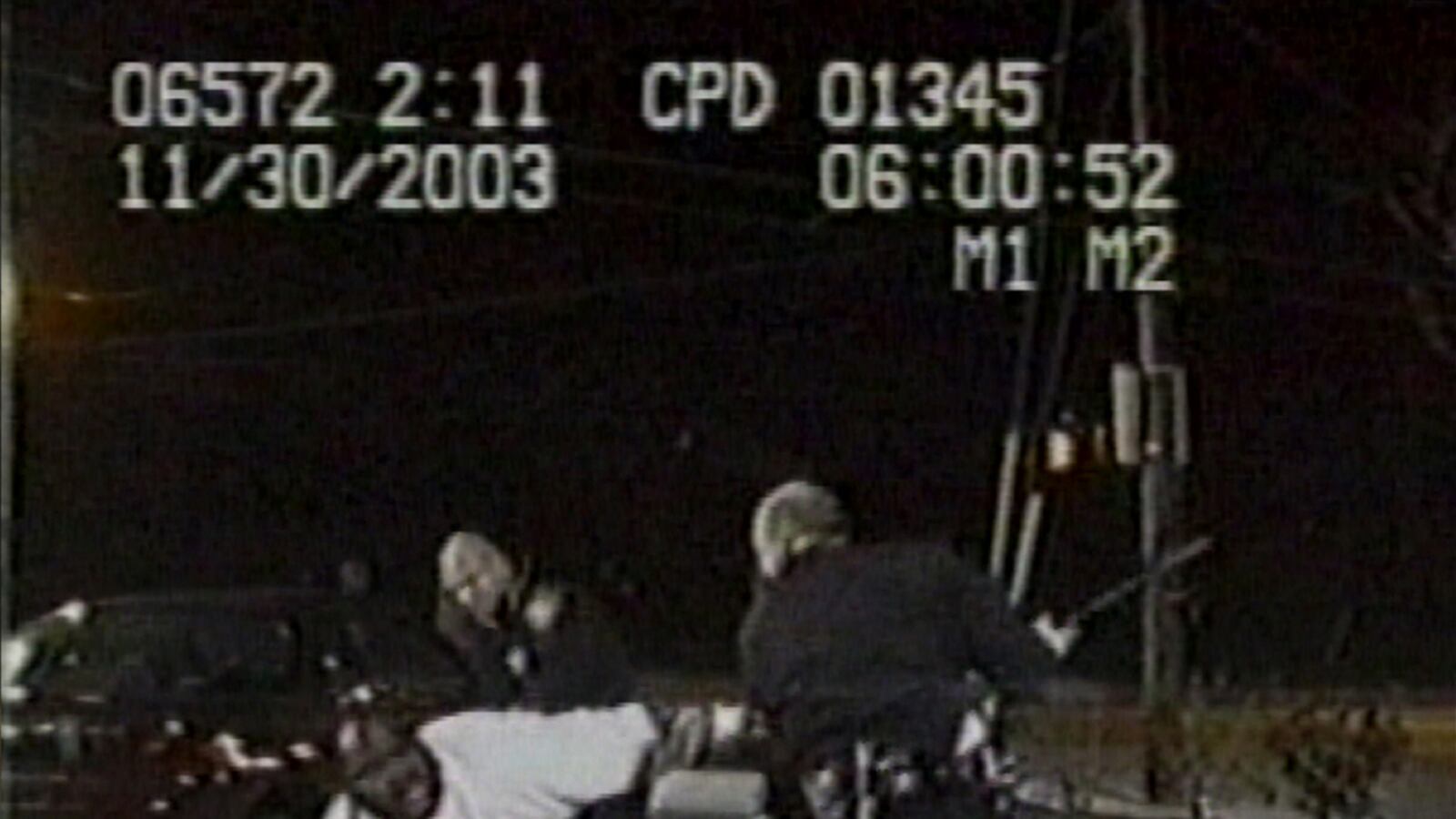Eric Garner’s last words, “I can’t breathe,” have become a national rallying cry after Wednesday’s news that a grand jury on Staten Island would not indict the white officer who put a fatal chokehold on the black father of six.
Shocking as it may seem that a videotaped altercation resulting in a man’s death didn’t return even a charge of involuntary manslaughter, Garner’s death at the hands of unpunished police isn’t even the worse case of brutality. The most egregious uses of lethal force have been borne by people with intellectual disabilities and children.
A grand jury failed to indict Frederick County, Maryland police officers who asphyxiated Robert “Ethan” Saylor, an unarmed man with Down’s syndrome. After seeing a movie in January 2013, Saylor, 26, reportedly tried to go back into the theater while his caretaker left him to get the car. Three off-duty cops working as security guards apprehended Saylor and proceeded to restrain him in an ultimately fatal fashion.
The officers said Saylor resisted arrest, but since Saylor’s IQ was 40, it is unclear if he could comprehend their commands. Witnesses say his last words were “it hurt” and “call my mom.” In March, a grand jury decided not to indict officers Rich Rochford, Scott Jewell, and James Harris in Saylor’s death.
In the case of Steven Eugene Washington, nothing more than a blank stare made him a target for police bullets. Two Los Angeles Police Department officers, Allan Corrales and George Diego, fired on the 27-year-old man with autism on March 20, 2010. The officers saw Washington walking alone with a “blank stare,” according to the account of one of the cops given in an internal investigation report. They apparently took that as a sign of suspicious activity, even though that can be a hallmark of people on the autism spectrum. When Washington reached into his waistband, the LAPD officers shot him in the head. Washington, it turns out, was reaching for his cellphone.
LAPD police chief Charlie Beck concluded Corrales and Diego had acted reasonably. A civilian commission overruled Beck and rebuked his conclusion. However, only Beck could initiate disciplinary proceeding. Both officers are still employed by the LAPD.
Minors are some of the most heart-wrenching cases of police shootings. Similar to the case of Tamir Rice, Sonoma County police officers mistook 13-year-old Andy Lopez’s BB rifle for a real AK-47. Deputy Erick Gelhaus said he told Gonzalez to drop the BB gun when he saw him on the streets of Santa Rosa, California on October 22, 2013. Gelhaus proceeded to fire eight shots at Gonzalez, striking him seven times, when he said Gonzalez raised the barrel. Gonzalez was reportedly in a sunny, residential area, which critics say further indicated he was not a potential police threat, or certainly one that did not warranted so many gun shots. His family members and neighbors also questioned police claims that Gonzalez did not follow officer orders. “He wanted to go to college and do something with his life. He would not have resisted. No way, no way. He’s not that kind of boy,” said Nicole Guerra, the mother of one of his friends.
Sonoma County district attorney Jill Ravitch announced in July that she would not bring criminal charges against Gelhaus. “Here the implementation of lethal force was a reasonable response under the circumstances,” she said.
Aiyana Stanley-Jones was not even confronting police officers when she was fatally shot the night of May 16, 2010. The seven-year-old Detroit girl was sleeping on the couch as her grandmother sat next to her watching television. A team of cops swarmed the apartment in the hunt for a potential homicide suspect they believed was hiding in the residences. Ironically, the cops were being shadowed by a film crew for A&E’s reality TV show The First 48. Cops launched a flash grenade through the window and officer Joseph Weekley fired, fatally striking Stanley-Jones.
In October of this year, Wayne County Circuit Judge Cynthia Gray Hathaway dismissed the involuntary manslaughter charge against Weekley as his second trial began to proceed. His first ended in a mistrial, as did the second, ultimately. “They knew there were children in there,” said Stanley-Jones grandma, Mertilla Jones. “So why would they come in there like that? They came to kill, and they killed a 7-year-old.”






